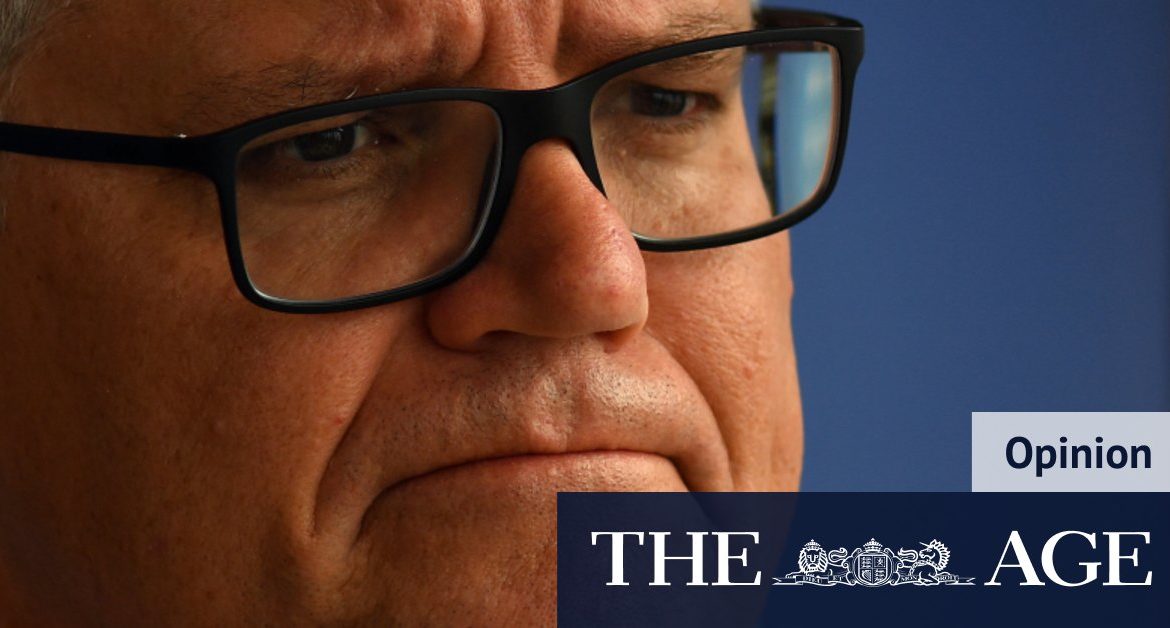What message would you take away if you were a young female staffer, holding information you knew could dominate headlines for weeks? And what message would you take away if you were the Prime Minister, after your tactics worked and you went on to win the election?
These questions are important in the light of what happened to former Liberal staffer Brittany Higgins. After she was allegedly raped in Parliament House, she said last week, she felt she had to choose between reporting it to the police and her career. This was not long before the 2019 election.
Brittany Higgins has said she was raped in Parliament House.
After an episode of Four Corners aired late last year, the Prime Minister had another chance to send a strong message about the treatment of women. That program was partly about the behaviour of two ministers, and partly about problems with sexism in the Liberal Party and within Parliament House. When asked, Morrison defended his ministers, praised what had already been done and talked about the importance of feeling safe within a workplace. But this was a narrow response that barely dealt with broader questions of sexism.
It was clear that Morrison had made a political calculation that the program was not sufficiently explosive to require a strong response. As is often the case, Morrison’s reading of the short-term political dynamic was correct. As he had in 2018, he barrelled onwards.
But genuinely significant cultural problems can never be contained by political management – or not for long. A cultural sickness eventually leads to behaviour so egregious, or at such scale, that it can no longer be ignored. At that moment, the behaviour of those who sought to minimise it is exposed as negligent.
This is what happened to the banks after the Royal Commission found a trail of moral failings, traceable to a culture in which profit was god. It is what happened to the Catholic Church on child abuse and what happened to Collingwood on racism.

Prime Minister Scott Morrison receives the COVID-19 vaccine on Sunday.Credit:Getty
What happened to Higgins points to two cultural sicknesses afflicting politics. One is sexism. After the Four Corners episode screened, I wrote about some elements of the problem: female staff treated with less respect and overlooked for jobs; blokes’ clubs and blokes’ jokes. All of these combine to keep men powerful and women less powerful.
The second is the tendency to believe that conventional morality can be pushed aside as just another obstacle to victory. With every sports rort, every dismissal of accountability, the idea that winning is all gains strength. Once we decide that ideas of right and wrong are matters of convenience their proper role can be hard to restore.
The failure to give Higgins the support she needed and deserved is, in part, a result of the intersection of these two powerful cultural forces.
Loading
These are matters for everyone in politics; and they predate Morrison. But Morrison is Prime Minister and has done little about either in his time in power – on the second, his scorn for accountability has made things worse. When challenged on sexism within his party, his approach, repeatedly, has been to say his party is not alone. That is true but it sounds like another excuse. This would not matter so much if it were not the latest in a line of excuses we have heard from him on this issue.
Yesterday, the Prime Minister was filmed receiving a vaccine. This is because he understands his power: the mere fact of him adopting a certain attitude can have a strong effect. He can’t fix the problems within the Liberal Party or within Parliament by himself. But changing his approach – which must first involve acknowledging the actual problems – could make a big difference.
Sean Kelly is a regular columnist and a former adviser to Labor prime ministers Kevin Rudd and Julia Gillard.
Sean Kelly is a columnist for The Age and The Sydney Morning Herald and a former adviser to Labor prime ministers Kevin Rudd and Julia Gillard
Most Viewed in Politics
Loading







